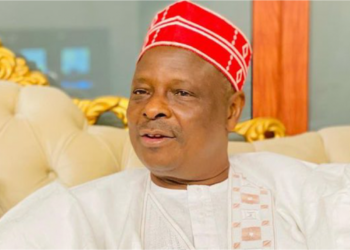 Nigeria has been identified as the country with the lowest number of women representation in the national parliament and the sub-regional parliament of the Economic Community of West African States (ECOWAS).
Nigeria has been identified as the country with the lowest number of women representation in the national parliament and the sub-regional parliament of the Economic Community of West African States (ECOWAS).
Nigeria is adjudged the ‘Big Brother’ in the sub-region: occupying a 35 seats where others occupy between 5 and 8, and contributing the highest to the community levy.
However, a statistics made available by the President of the ECOWAS Female Parliamentarians Association (ECOFEPA) during their summit in Abuja, shows Nigerian women in the nation’s parliament represent only 6.4 per cent, the lowest in the sub-region.
The President of the Association, Stella Oduah who decried the poor representation in her opening remarks at the summit, stressed that it was totally unacceptable.
According to the statistics presented by her, out of 438 members of the Nigerian bi-cameral national parliament, there are only 30 women: 7 Senators and 23 members of the House of Representatives.
Interestingly, Nigerian also has the lowest women representation at the ECOWAS Parliament. Out of the 35 seat allocated to Nigeria, women occupied only 4, representing a meager 11.4 per cent.
Ahead of Nigeria at number 14th position is the Republic of Benin which has 8.4 per cent women representation in the national parliament. Out of the 83 parliamentary seats, women occupy 7 while men occupy 76.
At the sub-regional level however Benin is at number 6th position with 20 per cent women representation at the ECOWAS Parliament.
At the national level, Mali occupies number 13th position with 14 female parliamentarians at the National level out of 147. But at the sub-regional level, Mali occupies number 4th.
On the number 12th position at the national level is The Gambia (10.3%) with 6 female lawmakers out of 58 seats. At the regional level, Gambia also occupies number 6th position.
Closely following the Gambia at the number 11th position at the national level is Liberia (10.6 %) with 11 females out of 92 seats followed by Sierra Leone at 10th position (10.7%) with 12 females out of 112 seats.
The statistics for the sub-regional level shows that Liberia also occupies number 6 position (20%) along with Sierra Leone at the same level.
At the national level, Cote D’Iviore holds number 9th position (11%), Ghana 8th (12.7), Guinea Bissau 7th (13.7%), Burkina Faso 6th (14.2%), Togo at 5th (16.5%), Niger 4th (17%), Cape Verde 3rd (17.4%) and Guinea 2nd with 22.8 female parliamentarians.
Occupying the first position at the National level is Senegal with 69 female lawmakers out of 165 seats, representing 41.8 per cent.
However, at the Sub-regional level, Senegal occupies number 13th position with only 16.7% female representation.
Topping the regional level is Guinea with 50 per cent female representation followed by Guinea Bissau with 40 per cent representation.
To tackle the low representation of women in West Africa, Oduah called for a collective effort to ensure at least 30 per cent female representation in all levels of government in West African countries.
She said women, particularly those rural areas, in the sub-region are still hampered by socio-cultural and religious practices, inadequate financial resources, volatile political environment, political party discrimination and absence of support from relatives and the media.
She stressed that, “Laws deliberately aimed at improving the plight of women economically and politically must be promoted and passed. The laws must prohibit discrimination against women by political parties and engender their protection against political violence.”









